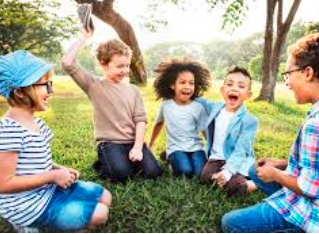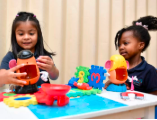Preschool is a time when children begin to explore the world beyond their families and start forming their first real friendships. These early connections help children develop social skills, empathy, and a sense of belonging. As educators and caregivers, guiding preschoolers toward healthy friendships can create a positive and supportive learning environment.
Create Opportunities for Cooperative Play
Cooperative play activities, such as building a tower together or completing a group puzzle, naturally encourage children to work as a team. These shared experiences help them learn about sharing, turn-taking, and listening to others—important foundations of friendship.
Model Positive Social Behavior
Young children often imitate the adults around them. When teachers and caregivers demonstrate kindness, respect, and inclusive behavior, children are more likely to reflect those values in their own interactions. Narrating friendly actions aloud (e.g., “I see you helped your friend find a toy—that was kind!”) reinforces positive choices.
Teach Children the Language of Friendship
Preschoolers may need help expressing their feelings or resolving conflicts. Providing them with simple phrases such as “Can I play with you?”, “I don’t like that,” or “Let’s take turns” empowers them to communicate more effectively. Circle time discussions or storybooks about friendship can be great tools for teaching these skills.
Encourage Inclusion and Empathy
It’s important to help children understand that everyone deserves kindness and friendship. Encouraging inclusive play—such as inviting a shy child to join a group—builds awareness and empathy. Celebrating differences through classroom activities also promotes a culture of acceptance.
Support Conflict Resolution Gently
Disagreements are a natural part of growing up. When conflicts arise, guiding children through a calm problem-solving process helps them learn how to manage challenges in relationships. Asking questions like “How do you think your friend feels?” or “What can we do to fix this?” promotes reflection and growth.
Foster a Safe and Welcoming Environment
Children are more likely to build friendships when they feel emotionally safe. Creating a predictable routine, offering positive reinforcement, and ensuring that each child feels seen and valued helps lay the foundation for trust and connection.
Conclusion
Helping preschoolers develop healthy friendships is one of the most meaningful parts of early education. With gentle guidance, consistent modeling, and opportunities to practice social skills, young children can learn to build kind, lasting relationships that support their development and joy in learning.


